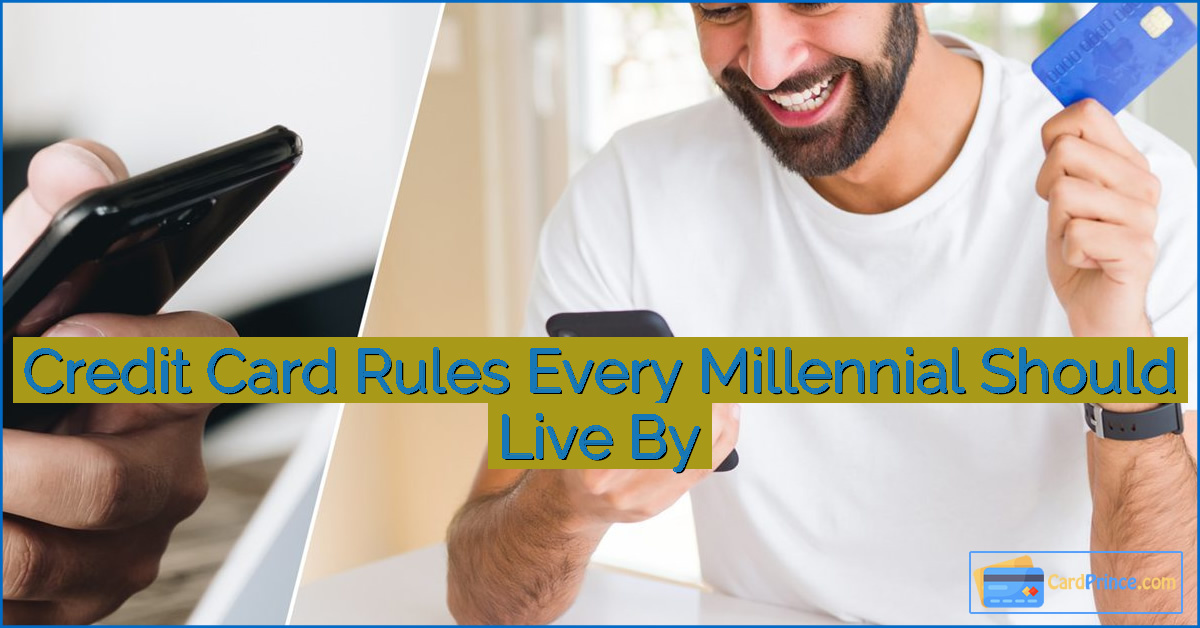Show Article Summary
Show Full Article
There are 1.06 billion credit cards in use in the United States. With numbers like that, it seems like everyone is getting a credit card these days.
But have you ever jumped into something without knowing what it was you were really getting yourself into? Can you guess how many of those credit cards were given to people who didn’t know the basics behind them? I don’t know the answer but I do know I was one of them.
I don’t even recall researching or applying for my first card. It just showed up and I used it. (insert facepalm here). I had it all through college and several years into my adulthood. Many mistakes were made with that card all because I didn’t do proper research on what it means to have a line of credit and how I can protect my finances and credit score by properly using it.
Below are 7 not so commonly known things about credit cards and how they work that I wish I would have known before applying and using one. I’m certain these insights will benefit you on your financial journey if you are looking to get yourself one.
What You Need To Know Before Getting A Credit Card
1. Applying for a Credit Card affects your Credit Score.
Your credit score is made up of different categories and those categories have a different amount of impact to making up your score. One of the categories are inquires and within those inquires there are soft and hard inquires. While soft inquiries (think background checks and checking your credit) do not affect your credit score, hard inquiries do!
What are hard inquires and how do they affect my score?
Hard inquiries come from financial institutions running your credit to check how responsible you are with money and whether they want to loan to you or not. From my personal experience hard inquiries definitely lowers your credit score and the more times you apply for credit, the lower your score gets.
Common hard inquiries include: applying for a car, mortgage, loan, or credit card. These inquiries typically stay on your credit report for two years and their affect minimizes as time goes on.
2. Pay your balance in full or you’ll pay interest (hint: interest is usually insanely high).
The interest rates are how the banks make their money so you better believe they are going to charge you something serious!
The only sure way to get out of paying interest on your purchases is to pay our bill in full each month and that’st he end of that. No ifs, ands, or buts about it. Pay your bill in full every month.
Related: 5 Questions to Ask Yourself Before Using Your Credit Card
3. Pay off your full balance transfer amount before the promotional period is up.
Balance transfers can be a great resource to getting out of debt and saving money but you absolutely have to pay them off before the introductory period is over to avoid any extra fees or consequences. If you can not pay the whole balance in the allotted time, you may end up paying retroactive interest on the entire transferred balance. Putting you in even deeper hole.
What is a balance transfer and how do I know if I should do one?
A balance transfer is essentially moving one amount of debt to another credit card. Not only can you move credit card debt, you can move auto loans, personal loans, and student loans to a credit card via balance transfer. Balance transfers may make sense to you if
- You are sure you can pay the amount off within the introductory period
- The credit card company you’re looking to transfer to offers you enough time to pay it off
- The company offers a 0% interest rate during the promotional period
- The credit card company offers 0% balance transfer fee (not always available but definitely a score if found)
- The credit card has a 0% interest rate
4. Having a high credit limit is not always a good idea.
The max amount you can spend on your card is called your credit limit. There are pros and cons of anything and having a high credit limit is no different. A high credit limit can be beneficial in keeping your credit utilization ratio low (if you keep your borrowing low) and gives you options when you need to smartly transfer a balance.
The trick with a high credit limit is the psychological effect it can have on you. When you receive a credit increase, you are more likely to increase your usage because it’s available and the more credit you use, the more debt you’re in. Which keeps you for your financial freedom longer.
Having a high credit limit helps by raising your credit score, yes but it may not be worth the temptation if you can not control how you use your card.
5. Pay attention to your Credit Card Utilization Ratio
Your credit card utilization is your credit usage to credit limit ratio. It’s best practice to keep your ratio under 30%. Keeping your utilization shows that you are managing your credit responsibilities well.
From experience, when I was carrying a lot of credit card debt my score plummeted. And after paying off a large amount of the debt my score raised 60 points! SIXTY.
Related: How I Paid Off $4,200 In Credit Card Debt in 9 Months
6. Cash Back programs aren’t always in your best interest.
Cash back cards are a great idea if you are in the habit of paying your card off in full each month. They become nightmare’s when you use them as incentive to spend more money to receive the allotted cash back rewards. All this does is create more debt for your family to get out of.
7. Credit Cards carry a number of additional fees that catch you by surprise if you are unaware.
Credit card fees can sneak up on you if you don’t do the right kinds of research and ask the right kinds of questions. Some of the most common fees are
- Annual Fees
- Late Fee
- Balance Transfer Fee
- Over-limit Fee
- Cash Advance Fee
- Returned Payment Fee
- Card Replacement Fee
Should You Get A Credit Card?
Credit cards are not scary. They are not evil. You can only get in trouble if you don’t properly research and prepare for the impact credit cards can have on your financial lifestyle.
To recap:
- Applying for a credit card negatively affects your credit score (even if only for a short time)
- Pay off your balance in full every month
- Pay your full balance transfer amount before the promotional period has ended
- Having a high credit limit isn’t always a good idea
- Pay attention to your credit debt utilization ratio
- Cash Back programs are not always in your best interest
- Credit Cards carry a number of additional fees.
Pick a question below and answer it in the comments below!
- Do you own a credit card? What caught you by surprise the most about owning one?
- If you don’t own one, why not?
- If you don’t own a credit card but plan to, what makes you want to get one now?
- What do you think about college kids having credit cards?
I’m trying to grow my readership. Can you help me out by sharing this blog post?
1. Applying for a Credit Card affects your Credit Score.
2. Pay your balance in full or you’ll pay interest
3. Pay off your full balance transfer amount before the promotional period is up.
4. Having a high credit limit is not always a good idea
5. Pay attention to your Credit Card Utilization Ratio
6. Cash Back programs aren’t always in your best interest
7. Credit Cards carry a number of additional fees that catch you by surprise if you are unaware




Leave a Reply